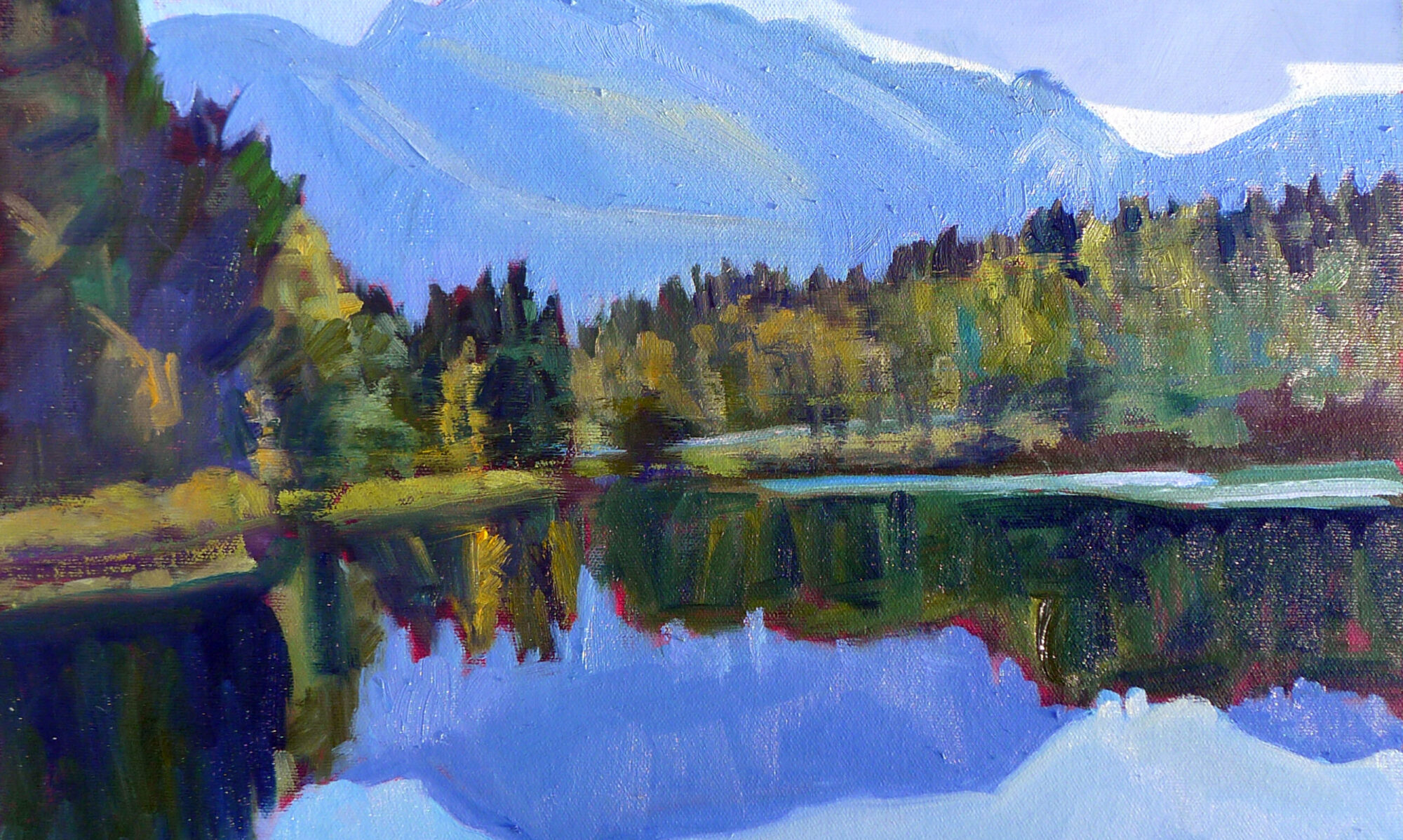While painting the bogs along the boardwalk to Liard Hot Springs in British Columbia, I was interrupted by a park vehicle that needed to pass. The driver and I peered at each other and realized we’d met last year. He’d given us a ride back from the hot springs in the middle of the night, stopping to check for bears frequently along the way.
“Good thing he did,” his brother told me. In 1997, a bear attacked four people at the hot springs. Two died and two were horrifically injured before the animal was shot. The park remains a hot-spot for bear-human interaction, and this year was particularly hard. When the blueberries are bad, the bears come down the mountain and enter the human areas of the park. The average tourist is clueless about bears, as I was reminded when I saw them exiting their cars to take photos of bears on the side of the road.

A black bear looking for clover in the Liard River Basin. “Bears are like hairy pigs,” a naturalist told me. “They’ll eat anything.”
These are not our eastern black bears. “People tell me that they saw a ‘little’ bear,” the park worker told me, “and when they’re trapped they turn out to be 350 pounds. That’s 350 pounds of muscles, claws and teeth.”
Right now, they have the bears pretty well cleared out of the area, but they’ll inevitably be back. The park is full of warning signs about them (“A fed bear is a dead bear”) and instructions on what to do if you encounter one.

The Liard River basin is known for its wandering herds of bison. They own the road, and this big bull was disinclined to let us pass.
The brothers are busy with chainsaws and weed-whackers, cutting the brush back from the boardwalk. That cuts down on surprise encounters.
Even though this is by far the best hot spring I’ve ever visited, I’ll never walk down to it in the middle of the night again. And in fact I didn’t visit it yesterday, either. Instead, I set up on the boardwalk to paint the tamaracks turning color along the bog.
In the east, we call this tree a larch; either name is correct. Although conifers, larches are also deciduous, meaning they lose their needles in autumn. I’ve been watching the spruces give way to them as we’ve traveled east. Their yellow is a more delicate color than the blazing golds of birch and aspen.

West of Liard River is Watson Lake. Its signpost forest was started in 1942 and now has over 70,000 signs from all over the world.
There are two more subjects in this part of the world I’d like to capture. One is the vastness of wildfire; the other is the color of water containing rock flour. Being ill, I haven’t done justice to this part of the trip. So I plan to backtrack today, toward Muncho Lake and the fast-moving waters of the Toad River.



